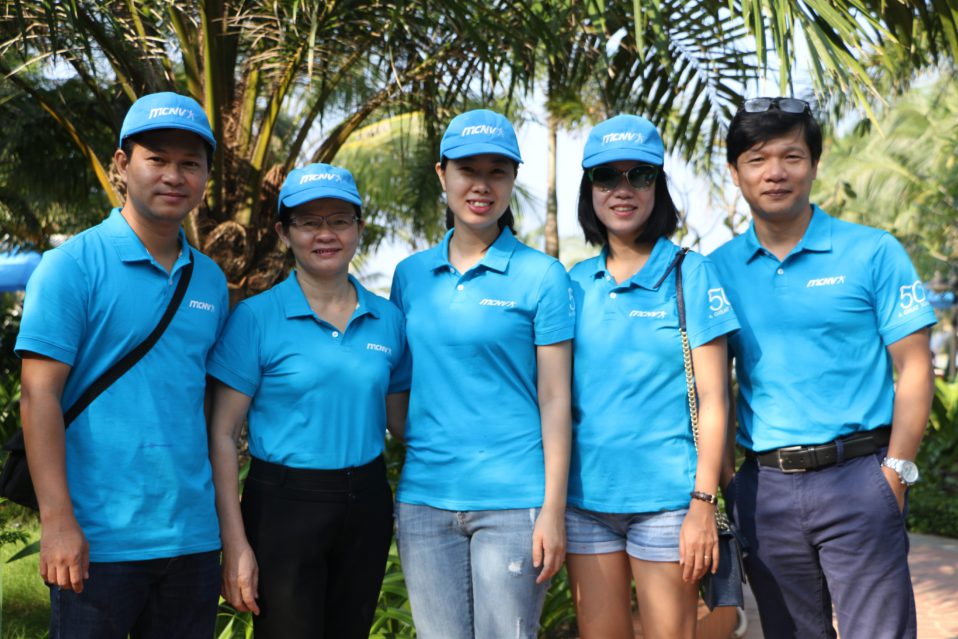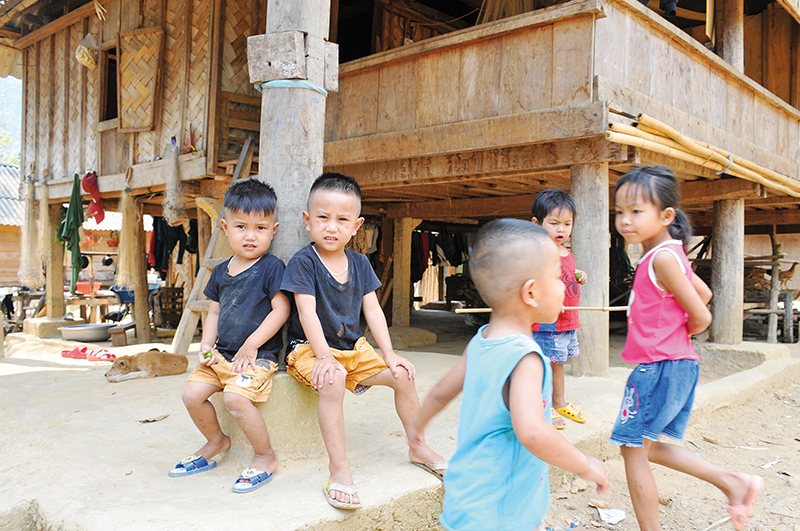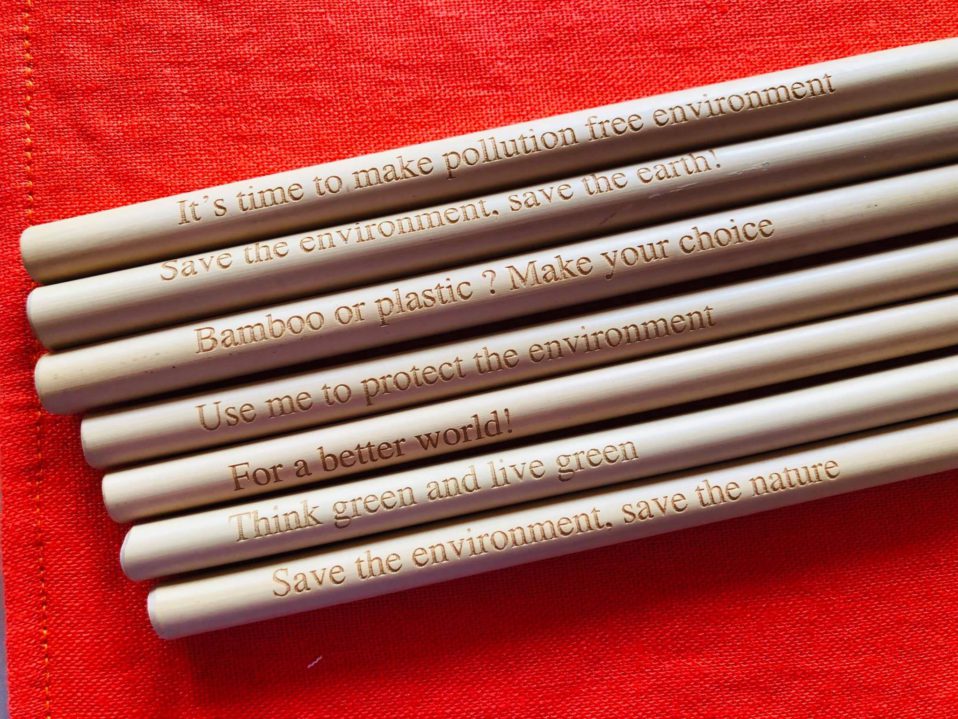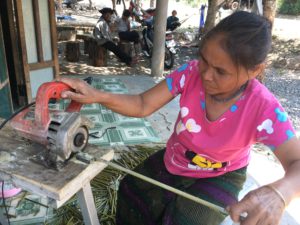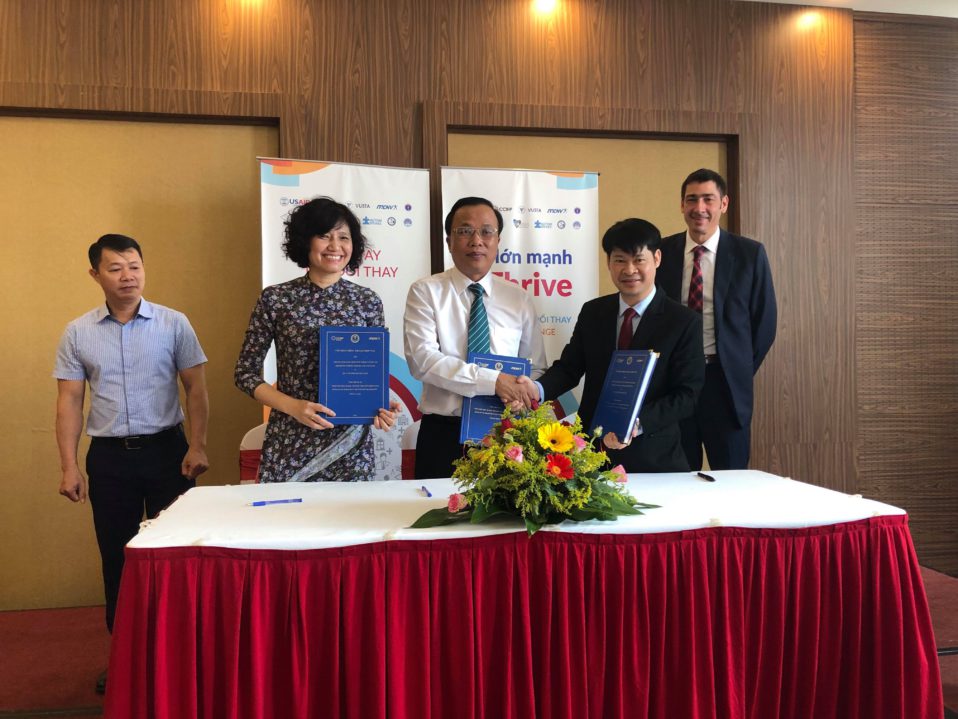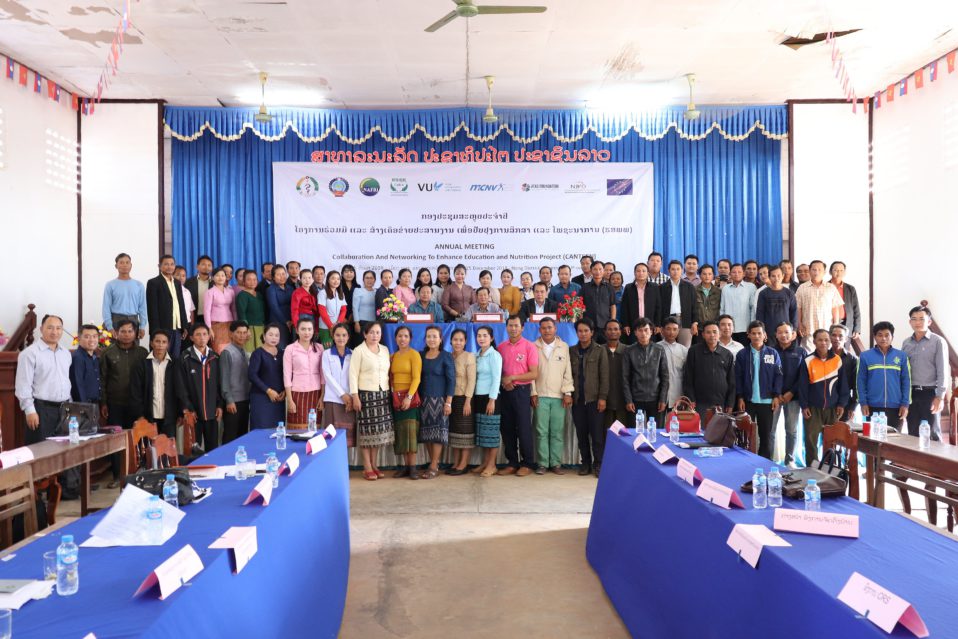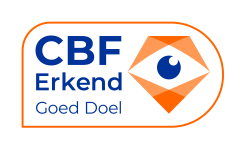Ngoc Lan, staff member of MCNV for 20 years
“We now think differently about disabled people”
As soon as we meet each other in the lobby of the hotel in Dong Ha, Nguyen Ngoc Lan spreads her arms and walks towards me with a smile. A cordial and inviting gesture that, according to all of MCNV colleagues, is characteristic of Ngoc Lan. She is a doctor, worked as a project manager at MCNV in Quang Tri for almost 20 years and left the organization at the end of 2018. While enjoying a cool glass of fruit juice I ask her to look back on the many projects in which she participated. Does she see improvements in the lives of the people she has supported?
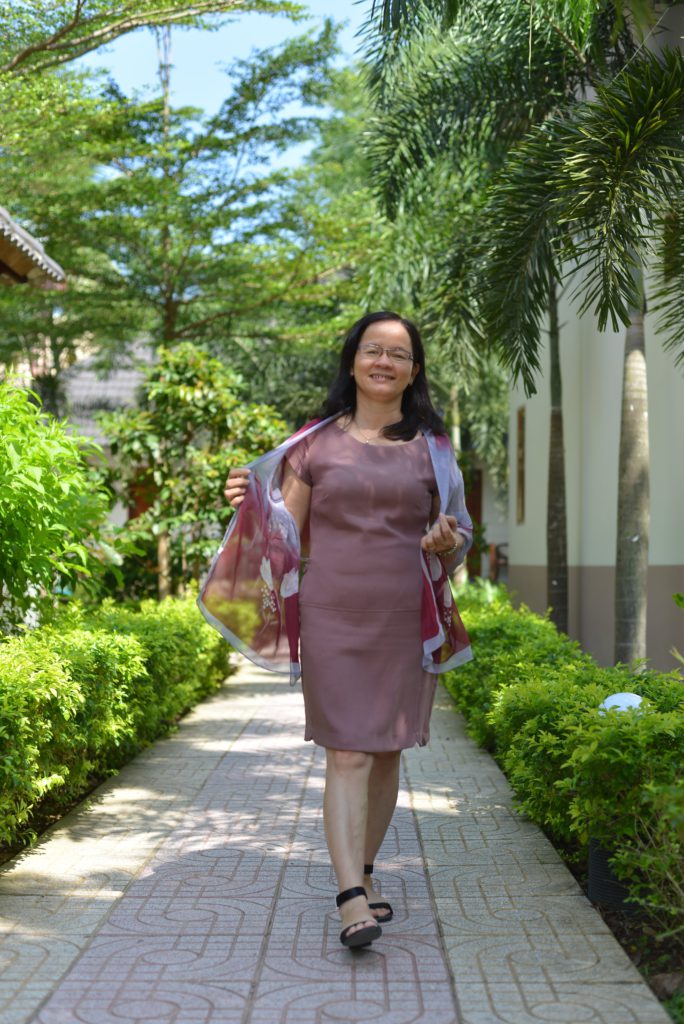
Ms. Ngoc Lan, staff member of MCNV for 20 years
Compared to the past I certainly see improvements in the lives of the disabled,” says Ngoc Lan. “Soon after I started at MCNV in 1999, I went to see a poor family with four disabled children. Try to imagine that, four seriously ill children in one family, who received no help or support whatsoever. Imagine the struggle of the parents to improve the situation. After the World Health Organization (WHO) issued a guideline on the inclusion of disabled people, MCNV, together with partners, devised a comprehensive approach to tackle the problems of disabled people. Good results have emerged from this.
” Having a disability, getting married was once unthinkable”
People with disabilities were dicriminated in the past, but when they stood up and started working, they got respect from the people around them. For the first time their lives moved upwards instead of spiraling downwards. People with disabilities who are getting married, for example, this was previously unthinkable in Vietnam. Most disabled people can now develop better physically because they can use guidance and physiotherapy at a young age. They have more self-confidence and can participate better, they learn that in the organization for the disabled. But that did not happen overnight. It takes a lot of time, we have been busy improving the living conditions of the disabled for 20 years. And we could only achieve that together with our very valuable partners and donors. The motto of the disability organization is: we learn, adapt and change. We learn, adapt and change, that also applies to MCNV.
“I am proud of what MCNV has done and I believe that much more can still be achieved, together with partners and donors.”
Already ten years later much more support was available for people with physical disabilities. But there was nothing at all for people with epilepsy or schizophrenia, for example. They were given some form of medication and nothing else. The medical staff was not trained to help these people in their daily activities or to improve their lives. Thanks to subsidies from the TEA (Transition in the East Alliance) program, from 2011 onwards, MCNV could implement a number of Mental Health projects. The changes we saw there were not so many in quantity, but essential in the quality of the lives of these people. Their family members were taught more about the illness of their loved ones and how to deal with their problems. We also trained the medical staff to better tailor the medication to suit the patient and the disease. There has been lot of progress, at relatively little cost, and MCNV can be proud of that.”
Support for school project
Ngoc Lan: “Another important project is waiting for support from MCNV. Two years ago a study showed that high school students suffer from depression, behavioral disorders and stress. More than 20% of 12- to 20-year old students have trouble in their lives. The rise of social media in Vietnam plays a role in that, because young people experience pressure to always deliver and be popular. Teachers can see these problems, but generally do not know how to support their students and, in serious cases, guide them towards professional caregivers. MCNV made a training plan for this, but we’re now waiting to implement it because unfortunately there is no money available. I hope that in the near future there will be money made available for this project still.”
By Saskia Stevens


